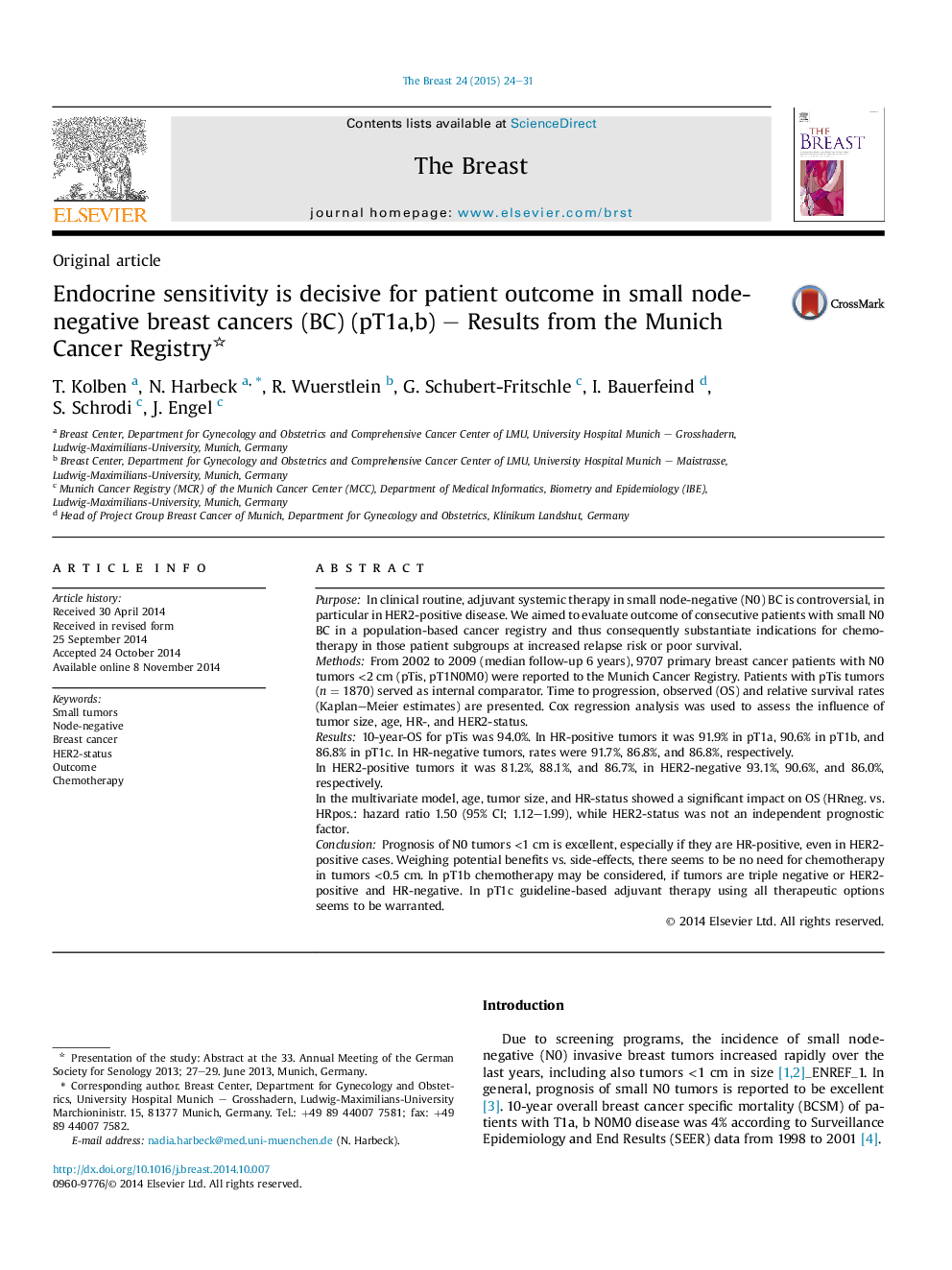| کد مقاله | کد نشریه | سال انتشار | مقاله انگلیسی | نسخه تمام متن |
|---|---|---|---|---|
| 3908207 | 1251169 | 2015 | 8 صفحه PDF | دانلود رایگان |

• We aimed to define the patient subgroups with tumors <1 cm which would benefit from adjuvant systemic chemotherapy.
• We analyzed their risk of BC-recurrence and survival using population-based cancer registry data.
• Prognosis of nodal negative tumors <1 cm is excellent, especially if they are HR-positive.
• No need for chemotherapy in pT1a tumors, in pT1b chemotherapy may be considered.
• In pT1c guideline-based adjuvant therapy using all therapeutic options seems to be warranted.
PurposeIn clinical routine, adjuvant systemic therapy in small node-negative (N0) BC is controversial, in particular in HER2-positive disease. We aimed to evaluate outcome of consecutive patients with small N0 BC in a population-based cancer registry and thus consequently substantiate indications for chemotherapy in those patient subgroups at increased relapse risk or poor survival.MethodsFrom 2002 to 2009 (median follow-up 6 years), 9707 primary breast cancer patients with N0 tumors <2 cm (pTis, pT1N0M0) were reported to the Munich Cancer Registry. Patients with pTis tumors (n = 1870) served as internal comparator. Time to progression, observed (OS) and relative survival rates (Kaplan–Meier estimates) are presented. Cox regression analysis was used to assess the influence of tumor size, age, HR-, and HER2-status.Results10-year-OS for pTis was 94.0%. In HR-positive tumors it was 91.9% in pT1a, 90.6% in pT1b, and 86.8% in pT1c. In HR-negative tumors, rates were 91.7%, 86.8%, and 86.8%, respectively.In HER2-positive tumors it was 81.2%, 88.1%, and 86.7%, in HER2-negative 93.1%, 90.6%, and 86.0%, respectively.In the multivariate model, age, tumor size, and HR-status showed a significant impact on OS (HRneg. vs. HRpos.: hazard ratio 1.50 (95% CI; 1.12–1.99), while HER2-status was not an independent prognostic factor.ConclusionPrognosis of N0 tumors <1 cm is excellent, especially if they are HR-positive, even in HER2-positive cases. Weighing potential benefits vs. side-effects, there seems to be no need for chemotherapy in tumors <0.5 cm. In pT1b chemotherapy may be considered, if tumors are triple negative or HER2-positive and HR-negative. In pT1c guideline-based adjuvant therapy using all therapeutic options seems to be warranted.
Journal: The Breast - Volume 24, Issue 1, February 2015, Pages 24–31